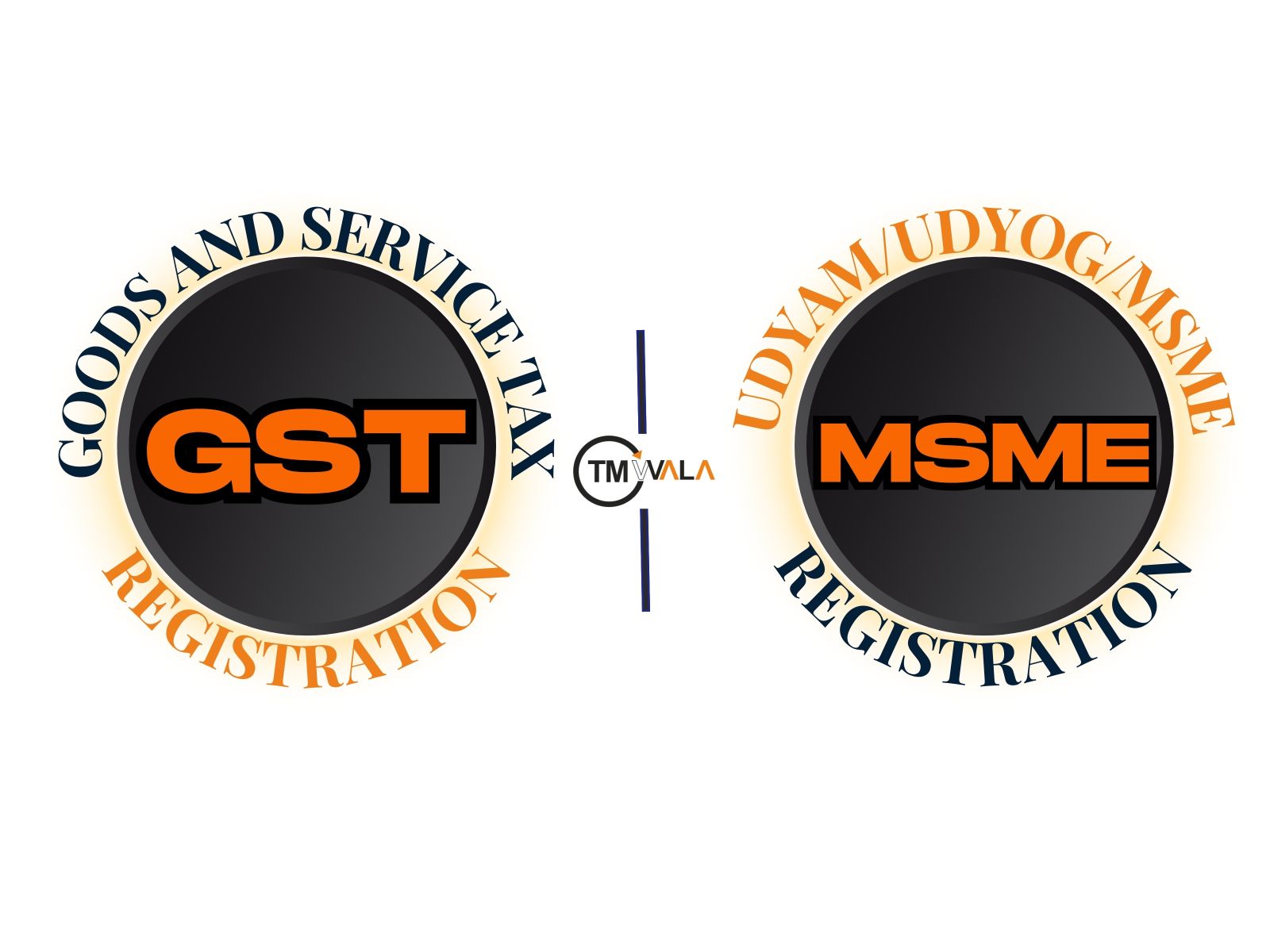Securing appropriate Business Registrations in India is extremely important for all businesses whether big or small in order to stay compliant with laws, take advantage of benefits offered by government and to avoid future legal penalties. Two such important Business Registrations in India are GST Registration and Udyam Registration, commonly referred to as MSME (Micro, Small and Medium Enterprises) Registration.
Duly obtaining GST Registration as well asUdyamRegistration is essential for all businesses in the country. However, the problem arises when business owners are unable to understand the difference between these two registrations. This article will help business owners distinguish between GST Registration and Udyam Registration and understand their basics in detail.
What is GST Registration in India?
The term GST stands for Goods & Service Tax. Registration granted to any business under the GST Law and practice regime is called GST Registration in India. GST Regime was introduced in India on 01/07/2017 which replaced multiple indirect taxes in India to come out as one comprehensive tax regime governing all Indirect Tax dealings in India. All businesses crossing the hereinunder mentioned financial threshold must obtain a GST Registration in India:
- For businesses dealing in goods: when annual turnover crosses 40 lakh.
- For businesses dealing in services: when annual turnover crosses 20 lakh.
GST Law and practice mandate all businesses exceeding this financial threshold to have a GST Registration in India. GST laws and practice also mandate filing of periodical returns disclosing businesses turnovers and profits. Thus, businesses owners must be mindful of staying compliance with the GST laws and practices.
What is Udyam Registration in India?
Udyam Registration, previously called as Udyog Registration and also called as MSME Registration is a registration granted to Micro, Small and Medium Enterprises in India, granting them recognition as a small business. The purpose of introduction of the Udyam Registration was to help the government identify small businesses in the country and provide them with benefits such as reduced government fees, subsidiaries, easier credit facilities etc. to help such businesses sustain and grow. Businesses under the following financial threshold may be granted registration as MSMEs:
- Micro Enterprises: Annual Turnoverupto ₹5 crores, Investment in Plant and Machinery/Equipmentupto₹1 crore
- Small Enterprises:Annual Turnoverupto ₹50 crores, Investment in Plant and Machinery/Equipment upto₹10 crores
- Medium Enterprises:Annual Turnoverupto ₹250 crores, Investment in Plant and Machinery/Equipmentupto₹50 crores
All MSME registered businesses must remember to file annual MSME returns to update data and avail benefits and schemes.
Key Differences between GST Registration vs Udyog registration
Although both are extremely important Business Registrations in India, and must be acquired by all. Still businesses owners must understand the detailed difference between GST registration vs Udyog registration(MSME Registration).
| FEATURE | GST REGISTRATION | UDYAM REGISTRATION |
| Governing Law | GST Law and Practicegoverned through CGST & SGST Act, 2017 | Micro Small and Medium Enterprise Development Act, 2006 |
| Objective | To ensure proper tax compliance &tax collection | MSME recognition and government support |
| Applicable To | Turnover-based (≥₹20–₹40 lakhs) | Investment & turnover-based |
| Issued By | GST Department (CBIC) | Ministry of MSME |
| Benefits | Input Tax Credit, legal recognition | Loans, subsidies, tender preference |
| Return Filing | GSTR-1, GSTR-3B, GSTR-9, etc. | MSME Return annually |
| Requirement | Mandatory for certain thresholds | Optional but highly recommended |
Which one do you need? GST Registration Vs. Udyog Registration
Both GST Registration as well as Udyam Registration are essential for businesses registrations in India.
A businesses needs a GST Registration if:
- Exceeds prescribed financial turnover
- Engages in inter-state supply
- Has an E-commerce business
Must obtain a GST Registration in India to stay compliant with GST Laws and practices.
A businesses needs Udyam Registration (MSME Registration) if:
- Comes under the financial threshold provided under the MSMED Act, 2006
- Wants to take benefit of government schemes, subsidies, policies etc.
- Wants recognition as an MSME to avail financial assistance
You need both GST Registration and Udyam Registration if:
- You are an MSME which is engaged in taxable supply of goods
- You are a GST Registered entity which wants to take benefits of government’s schemes, subsidies and policies provided under the MSME laws
- If you wish to obtain businesses growth, cheaper credit loans, financial assistance and funding.
Hence, for anyone falling under the third category, we highly recommend to obtain both Businesses Registrations in India for optimum protection, growth opportunity and to stay legally compliant.
Common Misconceptions regarding GST Registration and MSME Registration
There are several misconceptions surrounding GST Registration and MSME Registration in India. Let’s address these misconceptions one by one:
First and perhaps the most common misconception is that GST Registration and MSME/Udyog/Udyam Registration is the same. NO, GST Registration is for taxation, whereas Udyam Registration is for recognition of businesses’ status as a MSME.
Second common misconception is that only large corporations need to take GST Registration. NO, any business which crosses the financial threshold of 20 lakh in case of services and 40 lakhs in case of goods can obtain a GST registration.
Third common misconception is that Udyam Registration must be compulsory. NO, udyam registration is nothing but a recognition of a businesses’ status as a small business. It is entirely voluntary, but highly recommended.
Conclusion:
Both these are essential business registrations in India, however, they differ in their purpose. While GST Registration ensures tax compliance and is a mandatory registration, Udyam Registration is a mere recognition and is entirely voluntary.
A business falling under the financial threshold of both MSME Registration and GST Registration is strongly advised to obtain both these registrations for their businesses to ensure that your business continues to stay legally compliant and at the same time has opportunities of growth and government benefits. After obtaining these business registrations in India, one must remember to timely file MSME returns and GST Returns as per the GST law and practice
The first step however is definitely to obtain these registrations. Are you looking to obtain your GST Registration and Udyam Registration? Look no further! TMWala is here.
Wish to read more? Click the link to know more: https://tmwala.com/udyam-registration-msme/
Link to GST’s official government portal: https://www.gst.gov.in






